#Jean Edward Smith
Note
Read any good books since your last update about your recent reading?
Yes, although I forget when I last shared the books I've been reading, so hopefully I don't repeat anything.
I know that I've repeated this book because I've mentioned it several times over the past couple of weeks, but I can't help but remind everyone again about Steve Coll's excellent new book, The Achilles Trap: Saddam Hussein, the C.I.A., and the Origins of America's Invasion of Iraq (BOOK | KINDLE | AUDIO). It's definitely the best book I've read so far this year, and it's one of the better books I've read in the past 10 years.
Other recent books that I've read and would recommend checking out:
•Radiant: The Life and Line of Keith Haring (BOOK | KINDLE | AUDIO) by Brad Gooch
•The Far Land: 200 Years of Murder, Mania, and Mutiny in the South Pacific (BOOK | KINDLE | AUDIO) by Brandon Presser
•UFO: The Inside Story of the U.S. Government's Search for Alien Life Here -- and Out There (BOOK | KINDLE | AUDIO) by Garrett M. Graff
Garrett Graff has quickly become one of those authors who I go out of my way to immediately pick up his latest books because he's so well-connected and I ALWAYS learn fascinating things from his books. I don't know if there's a writer/journalist today who has better access to the American defense establishment or proven to be more capable of shining a light on many of the most secretive aspects of the United States government.
•"Uncool and Incorrect" in Chile: The Nixon Administration and the Downfall of Salvador Allende (BOOK | KINDLE) by Stephen M. Streeter
•Life After Power: Seven Presidents and Their Search for Purpose Beyond the White House (BOOK | KINDLE | AUDIO) by Jared Cohen
•The Liberation of Paris: How Eisenhower, de Gaulle, and von Choltitz Saved the City of Light (BOOK | KINDLE | AUDIO) by Jean Edward Smith
•Unruly: The Ridiculous History of England's Kings and Queens (BOOK | KINDLE | AUDIO) by David Mitchell
•The Rise and Fall of a Palestinian Dynasty: The Husaynis, 1700-1948 (BOOK) by Ilan Pappe
•In the Houses of Their Dead: The Lincolns, the Booths, and the Spirits (BOOK | KINDLE | AUDIO) by Terry Alford
•Kingdoms of Faith: A New History of Islamic Spain (BOOK | KINDLE | AUDIO) by Brian A. Catlos
•Borgata: Rise of Empire: A History of the American Mafia, Volume 1 of the Borgata Trilogy (BOOK | KINDLE) by Louis Ferrante
•Soldier of Destiny: Slavery, Secession, and the Redemption of Ulysses S. Grant (BOOK | KINDLE) by John Reeves
•His Final Battle: The Last Months of Franklin Roosevelt (BOOK | KINDLE | AUDIO) by Joseph Lelyveld
•Charlie Chaplin vs. America: When Art, Sex, and Politics Collided (BOOK | KINDLE | AUDIO) by Scott Eyman
#Books#Recent Reading#Recent Books#Book Suggestions#Book Recommendations#The Achilles Trap#Steve Coll#Radiant: The Life and Line of Keith Haring#Brad Gooch#The Far Land#Brandon Presser#UFO: The Inside Story of the U.S. Government's Search for Alien Life Here -- and Out There#Garrett M. Graff#“Uncool and Incorrect” in Chile: The Nixon Administration and the Downfall of Salvador Allende#Stephen M. Streeter#Life After Power: Seven Presidents and Their Search for Purpose Beyond the White House#Jared Cohen#The Liberation of Paris#Jean Edward Smith#History#Unruly: The Ridiculous History of England's Kings and Queens#David Mitchell#The Rise and Fall of a Palestinian Dynasty: The Husaynis 1700-1948#Ilan Pappe#In the Houses of Their Dead#Terry Alford#Kingdoms of Faith: A New History of Islamic Spain#Brian A. Catlos#Borgata: Rise of Empire: A History of the American Mafia#Louis Ferrante
7 notes
·
View notes
Text
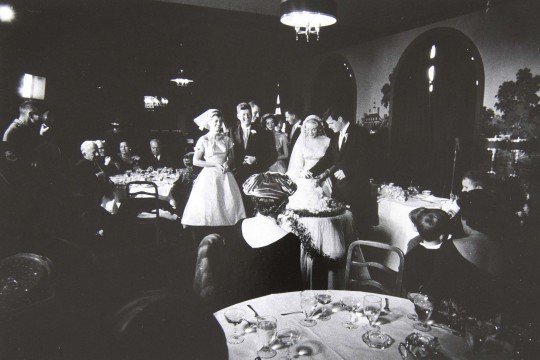
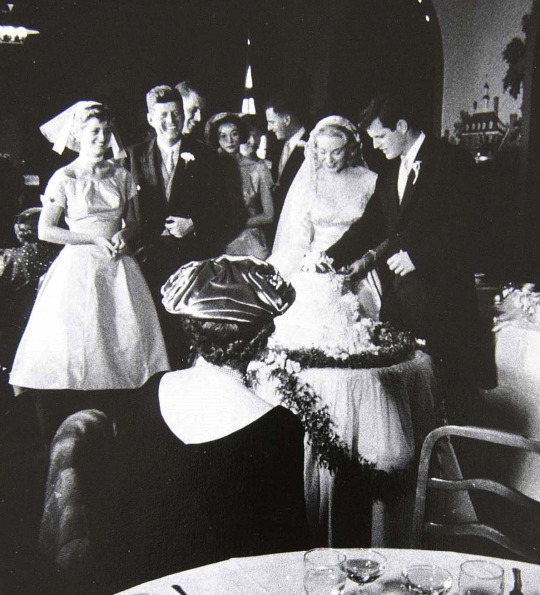
November 29, 1958 - Ted and Joan Kennedy cutting wedding cake, Bronxville, NY, with JFK smiling
#Omg first time seeing this one#Gorgeous#1950s#1958#Joan Kennedy#Joan Bennett Kennedy#Ted Kennedy#EMK#Edward M. Kennedy#JFK#John F. Kennedy#Jean Kennedy Smith#Wedding
30 notes
·
View notes
Text

The Kennedys in England - c. 1938
L to R: Eunice, Jack, Rosemary, Jean, Joe Sr, Ted, Rose, Joe Jr, Pat, Bobby, Kick
#joe kennedy sr#rose kennedy#rose fitzgerald kennedy#joe kennedy jr#john f kennedy#jfk#rosemary kennedy#kick kennedy#kathleen kennedy cavendish#eunice kennedy#eunice kennedy shriver#patricia kennedy#patricia kennedy lawford#robert f kennedy#rfk#bobby kennedy#jean kennedy#jean kennedy smith#ted kennedy#edward m kennedy#emk#kennedy family#the kennedys
24 notes
·
View notes
Text

The Kennedy siblings with the newlyweds. Front row: Bobby, Jackie and Jack; back row: Pat, Ted, Eunice and Jean.
#Robert F. Kennedy#Jacqueline Kennedy#John F. Kennedy#Patricia Kennedy Lawford#Edward M. Kennedy#Eunice Kennedy Shriver#Jean Kennedy Smith#Kennedy Weddings
60 notes
·
View notes
Text

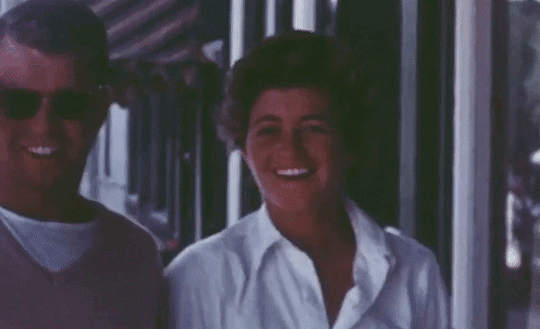



“It has been said, 'time heals all wounds.' I do not agree. The wounds remain. In time, the mind, protecting its sanity, covers them with scar tissue and the pain lessens. But it is never gone."
- Rose Fitzgerald Kennedy
#when they were young#the kennedys#first family#rose kennedy#joseph kennedy jr.#john f. kennedy#jfk#robert f. kennedy#rfk#kathleen kennedy#patricia kennedy#eunice kennedy shriver#jean kennedy smith#rosemary kennedy#edward kennedy#ted kennedy#kennedy family#old money#vintage
78 notes
·
View notes
Text
Mr. Smith Goes to Washington: Genre and Themes
At first glance, indeed, even at second glance, Mr. Smith Goes to Washington doesn’t seem to really lend itself to a specific genre the way The Goonies or The Princess Bride did. Whereas those films positively dripped with the atmosphere of an adventure or fantasy film, Mr. Smith Goes to Washington is considerably more ‘real world’ than that, without necessarily heading into ‘slice of life’ territory.
If story is the backbone of a film, the underlying solid base, then genre is the trappings, the flavor, the seasonings the writers get to play with to create their final dish. Some stories automatically come with pre-packaged genre, as it would seem, stories like Frankenstein seem little suited to be anything other than a sci-fi horror film, after all, but most, and indeed some would say all stories have the capabilities of remaining solid in their identities, even with a completely different genre than we’re used to.
In the case of Mr. Smith Goes to Washington, however, there doesn’t seem like there’s a lot of ingredients to mix.

Officially, Mr. Smith Goes to Washington is labeled as a ‘political comedy-drama’, an eclectic mishmash of styles that doesn’t necessarily rear its head too often in the realm of film. Political films tend to be more true stories like All the President’s Men, or thrillers like The Manchurian Candidate. Mr. Smith Goes to Washington is neither. However, that isn’t to say it’s not political.
The entire world of Mr. Smith Goes to Washington is politics. It lives and breathes the inner workings of American bureaucracy, without either exploiting or sugarcoating it.
It is, at its core, an anti-politics political film. There is no pleasure that the film derives from exposing any corruption, nor does it take pains to pretend that corruption does not exist. It freely paints the politicians and the non-politicians as people, dealing with consequences to their actions: from Senator Paine, the tarnished hero, to Clarissa Saunders, the cynical, worn-out tool of Washington. The focus of the story is not so much on the inner workings of the state and country as it is the people that perform them, that manipulate the cogs of the machine to their own benefit, and those who stand to prevent it.
It’s not a very technical film. You don’t have to have a degree in law in order to understand the film, or allow it to resonate, and that, perhaps, is what makes it so special.
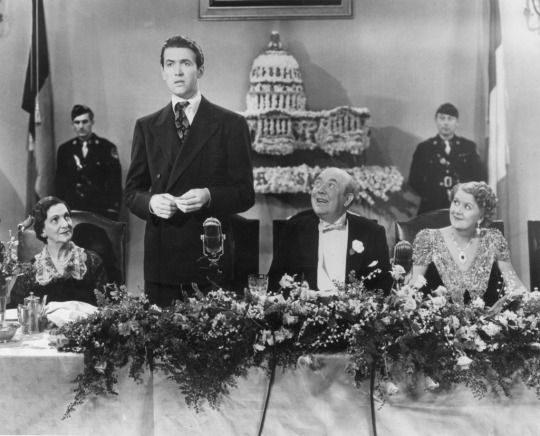
The ‘political’ slant of Mr. Smith Goes to Washington isn’t in the process that Saunders outlines to Jefferson in order to get his bill passed. On the contrary, the bill itself is a minor incident, the catalyst that forces the corruption out into the open. The story isn’t about the bill at all, nor is it even about the plot of the other politicians: it is about the politicians themselves. There are no parties mentioned, no real figures portrayed, no accurate historical events referenced: and yet something about this film did strike a chord in the very real Washington D.C.
Upon Mr. Smith’s release in Constitution Hall, DC dissolved into uproar about the film’s portrayal of American politics, to the point that Alben W. Barkley, the Senate Majority Leader at the time, remarked that it: “makes the Senate look like a bunch of crooks”.
In other words, something about this film struck some people, mostly the people in Washington, the wrong way. And yet, even at the time of its initial release, audiences, the Mr. Smiths of the USA, adored it for a reason.
At its core, chiefly, yes, Mr. Smith is a film about politics, and even history. Every fiber of the movie vibrates with patriotism, with love for America, and with pride in democracy. The film is not a condemnation as such as it is a warning: ‘we will lose what we have built if we think only of ourselves.’ It is a perfect combination of both a celebration of America’s past, and a concern for the future, a notation of the path the nation’s leaders seemed to be going down. Mr. Smith Goes to Washington is a story about big P Politics, all right, but it is not a scowling, scolding film, pointing an accusatory finger at the little p politicians, the fallen white knights. It is instead a film that holds up a figure of a person who knows on what the country was founded, and believes in it so strongly enough that he forces a change, even if it’s a small one.
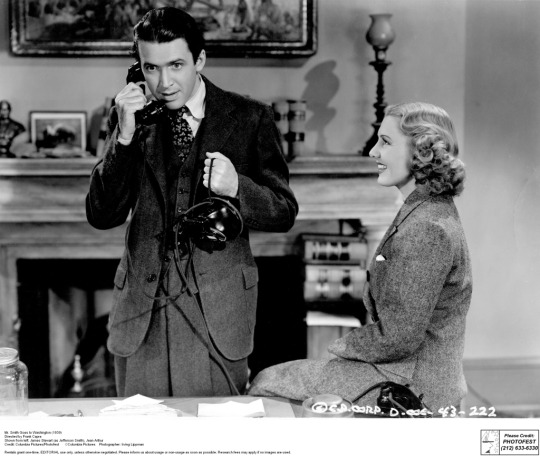
And the film is also pretty funny, too.
The genre of ‘comedy’ tends to bring to mind slapstick or wordplay classics, and in the 1930s, the ‘comedians’ definitely had their specific brands: the Marx Brothers, the Three Stooges, Laurel and Hardy, and others were taking cinema by storm. Audiences, especially in the middle of the Great Depression, desperately wanted a laugh, and even though there were no pratfalls in Mr. Smith Goes to Washington, there is a wry sense of humor about it, particularly near the beginning.
Early scenes in this film play almost like scenes from a ‘fish out of water’ comedy, with Jefferson Smith having no idea how to function in the new, fast-moving, cynical climate of Washington D.C. Other characters, such as Saunders and Diz, exist as quip-generating machines, full of the fast-paced, witty dialogue characteristic of films of the time. Many of the more comedic sequences in the story come about through direct conversation between Saunders and Smith and the subsequent clash of ideas and personalities.
So yeah, Mr. Smith is a pretty funny movie at times. I must admit though, it’s hard to make the argument that it’s a comedy.
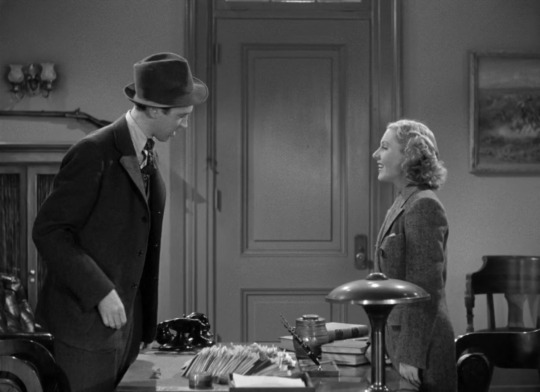
Smith’s plight is not comedic, at least, not more than halfway through the story. He is not a comedic figure, nor are most of the characters around him. While one could make the argument that the initial conceit of the story is comedic, I am hard pressed to agree that the story remains a comedy throughout. If anything, the throughline of tragedy seems clearer, notably in the character of Senator Paine.
Paine is what Smith could have been: a noble figure broken by greed, by corruption, by fear, turned into another cog in someone else’s profit machine, willing to throw countless people under the bus for gain. By the end of the story, he is not only guilty, he is convicted, ashamed after being forced to confront what he has become. His story nearly ends in suicide, and it certainly ends in the ruination of his career, after having thrown away belief in all of the words he is so used to spouting. He is the warning thrust up before contemporary Washington’s eyes: the white knight tarnished by greed.
Smith’s story, though uncorrupted, is similarly bleak: unbelieved, unheard, and unable to get the word out, he ends the film exhausted and crushed after hours of seeming futility. The film’s happy ending does not come as a result of all of his hard work, but through the guilt of Senator Paine driving him to confess. Smith does not reach the climax of the film like a comedy protagonist does at all, but like a tragic hero.
And yet, this film isn’t a tragedy either.
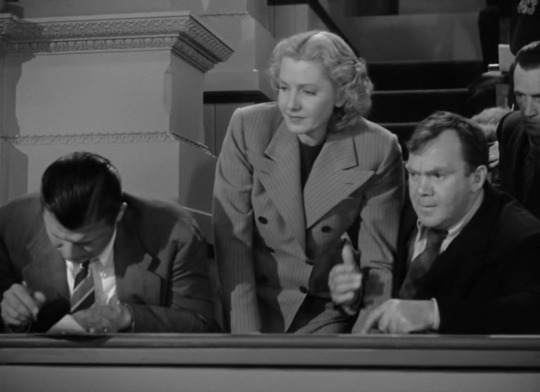
So what is it?
I have a theory: that a film’s genre can be best solidified through a few major checkpoints: its themes, and its characters, specifically its protagonist.
The themes of Mr. Smith are obvious ones: duty to one’s country, certainly, but honesty above all. The liars are the villains, and the heroes tell the truth. The story is built around good morals and simplicity, with the center of virtue being Mr. Smith himself.
In another era, Smith himself may have been a knight in shining armor, risen to his position from peasantry to achieve noble deeds. As it is, in 1930s America, Smith is an ordinary man in an extraordinary position: an everyday guy elevated to the position of senator.
Of course, the intention was never to give him any real power, but nonetheless, power he wields. And it’s his decisions on handling that power that set him apart from the other characters. He behaves very much like a normal person, an average citizen in a political jungle with very little navigation. There is no hero’s journey here: if anything, Mr. Smith finishes the story as a broken, more cynical character rather than a triumphant hero. The victory is in refusing to compromise your principles, no matter the cost or circumstance, and there is no dragon to slay here: just men, corrupted by power.
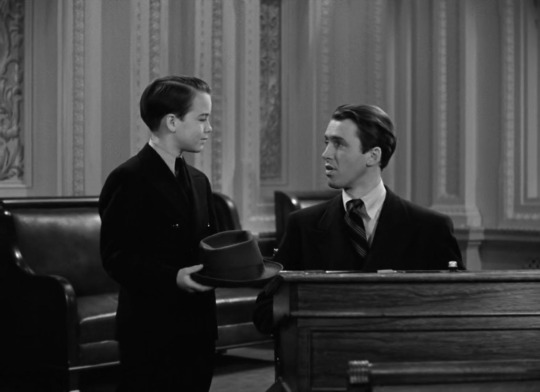
In other words, it’s a drama.
While there are many forms of ‘drama’ in the broad spectrum, typically, the term ‘drama’ means that a subject is more dramatic than humorous, with a primary element of the story being conflict, but not necessarily of the physical kind. It’s a story with more of an emphasis on who the story is happening to, and why, with less concern for what exactly is happening.
Such is the case for Mr. Smith Goes to Washington.
Mr. Smith is a story about real people, people you or I might know, from the virtuous Jefferson Smith to the cynical Ms. Saunders, to the corrupt, but still human, politicians, some malicious, some merely led astray from their previous values. This is not a story of ‘heroes vs. villains’, this is a story about the ‘Right Thing to Do’, and the people with the courage to do it.
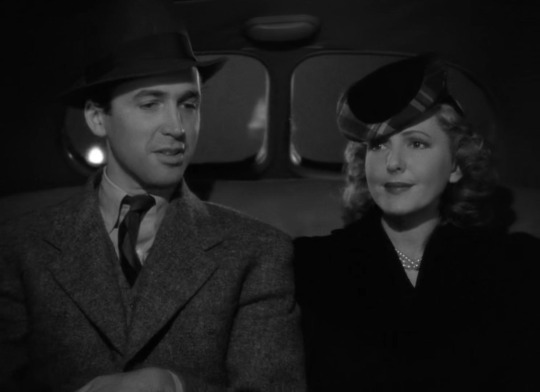
And that’s most of its appeal.
Capra’s passion is for people in this film, the everyday, the ordinary, the ‘Little Guy’ who becomes, not a dragonslayer, but a man with the opportunity to truly do some good, faced with tough decisions. It’s a story full of heart, sprinkled with humor, and loaded with humanity as it views, through very human lenses, the world of politics through a protagonist who’s meant to be a fish out of water.
That is Mr. Smith’s legacy.
The story isn’t groundbreaking. The cinematography isn’t breathtaking. The writing isn’t jaw-dropping. But the people, the characters, live and breathe on the screen as people, characters that the audiences love, and cheer for. We root for these people because of the drama of the situation, and the time and care that the film takes to delve into them.
That, more than the politics of the situation, is the reason people return to this film again and again.
And that, the people, the characters, is what we’ll be turning our attention to next time.
#Mr. Smith Goes to Washington#Mr. Smith Goes To Washington 1939#1939#30s#Film#Movies#Political#Drama#Comedy#James Stewart#Jean Arthur#Claude Rains#Edward Arnold#Thomas Mitchell#Frank Capra
25 notes
·
View notes
Text






#potc#jack sparrow#captain jack sparrow#young jack sparrow#young captain jack#rob kidd#fitzwilliam p. dalton iii#arabella smith#tumen#jean magliore#costance magliore#edward teague#capitan teague#bill turner#captain edward teague
15 notes
·
View notes
Text
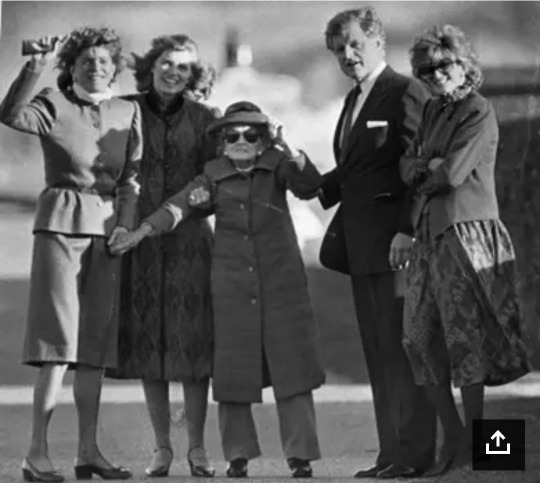
HYANNIS PORT--11/22/1983--Patricia Kennedy Lawford, Eunice Shriver, Mrs. Rose Kennedy, Senator Edward Kennedy, and Jean Smith, family gathered in driveway for private service to commemmorate President John F. Kennedy assasinated 20 years prior. (Sean Kardon)
#patricia kennedy lawford#patricia kennedy#the kennedys#kennedy family#eunice kennedy shriver#eunice shriver#jean kennedy smith#edward kennedy#emk#ted kennedy#rose kennedy
17 notes
·
View notes
Text
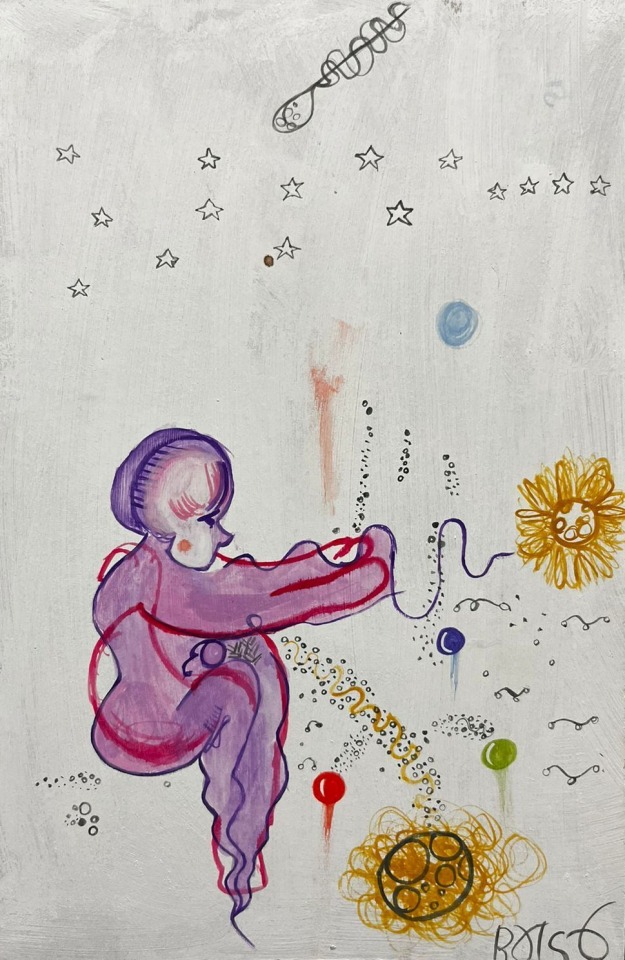
Jean-Michel Basquiat, Untitled, 1977. :: [Edward Smith]
* * * *
"I think we should see the fear of gays, drag queens, etc. as part of the same thing as defunding libraries, increasing cops, anti-homelessness, true crime—it's all about demonizing all public space and culture.
It is much easier to control people when they are lonely, isolated, and do not experience anything outside of individualized, corporate-controlled spheres of influence.
It's a self-feeding system. The less you are exposed to the diversity of experience inherent to public spaces, the more you want to replicate the tightly-controlled world you inhabit. The more scared you become. Thus more willing to support what replicates your privatized world."
-P.E. Moskowitz
[Edward Smith]
#jean michel basquiat#untitled#about art#P.E. Moskowitz#quotes#Edward Smith#privatized world#public spaces#demonizing public space
2 notes
·
View notes
Text
Mr. Smith Goes to Washington (1939)

Only one thing dates Mr. Smith Goes to Washington: the controversy that accompanied its release. Said controversy seems absurdly comical when looked at today. This 1939 film is eerily modern. Brilliantly acted and directed, memorable, emotional, funny and touching, it’s the kind of movie you’ve seen referenced and imitated many times - you just don't know it. This is one of the great ones, the kind of story that awakens something inside you.
Under pressure from the corrupt Jim Taylor (Edward Arnold), Governor Hubert Hopper (Guy Kibbee) must appoint a new U.S. senator to replace the recently deceased Sam Foley. They are looking for a stooge the crooked Senator Joseph Paine (Claude Rains) can keep in check. Taylor chooses Jefferson Smith (James Stewart), a wholesome idealist with no political experience.
If you’re familiar with any moment from Mr. Smith Goes to Washington, it’s probably the climactic “filibuster scene”. If this is all you know, you have no idea what the film is really like. You might’ve guessed that it’s inspirational but Smith is more than an everyman, he’s the concept taken to another level. Once in Washington, he immediately walks away from his entourage and goes on a pilgrimage around the city, visiting monuments that take his breath away. As an audience member in the 21st century, you chuckle a little but it doesn’t take too long for you to understand what he’s seeing. Smith is not like us. He’s never seen the Statue of Abraham Lincoln; he’s only heard and read about it. Standing in the shadow of the marble titan, he cannot help but be overwhelmed by hope and inspiration. He knows he’s underqualified for the job given to him. Rather than be discouraged, he's determined to try even harder.
You sympathize and fall in love with the dreamer thanks to James Stewart’s performance. When he comes head-to-head with Taylor and his stooges, you realize the movie is about so much more than politics; it’s about standing up for what’s right no matter the odds. Taylor has all of the power. He can basically do whatever he wants unopposed. Even knowing this cannot prepare you for the overwhelming obstacles Smith faces. And what does our hero have to counterattack with? Little more than the backing of the people he’s won over legitimately - which is still not much compared to what money can buy. It’s a nerve-wracking battle, the kind that makes you sink into a pit of despair. You don’t know whether ultimately, this is a fight he can win. Maybe an unhappy ending is the reason the film was attacked as anti-American and pro-Communist for its portrayal of corruption in the government...
Democrat and Senate Majority Leader Alben W. Barkley called the film “silly and stupid”, “a grotesque distortion” of the Senate, which is a shock to anyone who watches today. Part of what makes Mr. Smith Goes to Washington so good is its authenticity. Though Smith is an idealist, the story knows being in power doesn't mean you're a good person. There are a lot of crooked people in the story. Even the nice ones are passively complicit in the dark deals happening in Washington - but there’s also hope. It’s made clear that ultimately, Frank Capra believes one person CAN make a difference, that individuals ARE important.
All this makes the movie seem so dark and dire. It is, particularly during the last act but it’s also got a lot of humour throughout. Smith is such a fish out of water you can’t help but laugh at him when he arrives on the scene. You'll be in stitches every time he interacts with his appointed secretary, the cynical takes-no-guff-from-anyone Saunders (Jean Arthur, fantastic). The two of them are so good together that you could forget all of the business in the Senate and still have a great film.
Simply as a piece of cinema, Mr. Smith Goes to Washington is a delight. A particular scene in which the camera focuses on Smith’s hat says so much with so little. You don’t see the performers’ faces at all but you know exactly what’s going on. There are many scenes like this. It’s simply fabulous, the kind of movie that has a little bit of everything: romance, humor, suspense, great performances, camerawork and writing. This is the kind of movie you see once and then never forget. (On Blu-ray, June 26, 2020)

#Mr. Smith Goes to Washington#movies#films#movie reviews#film reviews#Frank Capra#Sidney Buchman#Myles Connolly#Jean Arthur#James Stewart#Claude Rains#Edward Arnold#guy kibbe#thomas mitchell#Beulah Bondi#1939 movies#1939 films
5 notes
·
View notes
Text
getting out a book about the new deal period so i can read something fun and escapist to help me cope.
11 notes
·
View notes
Photo

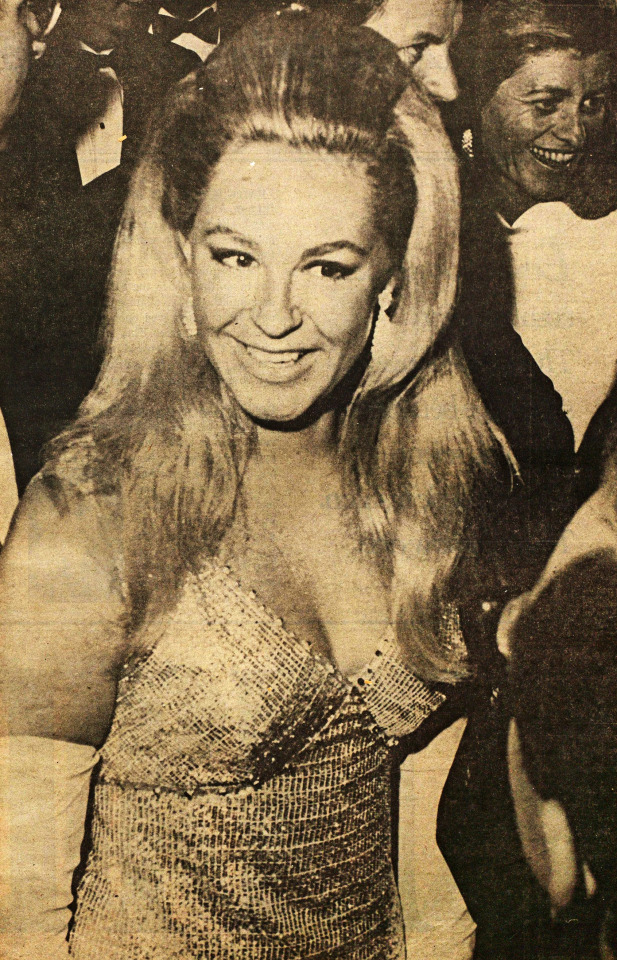
May 29, 1969 article featured in Women’s Wear Daily
#Yasss Joan the golden girl#You know what it is#1960s#1969#joan kennedy#Joan Bennett Kennedy#Women's Wear Daily#Magazine#Article#Ted Kennedy#EMK#Edward M. Kennedy#Jean Kennedy Smith#The Kennedys#kennedy
8 notes
·
View notes
Text

September 12, 1953
#john f kennedy#jfk#jackie kennedy#jacqueline bouvier kennedy#robert f kennedy#rfk#bobby kennedy#lee radziwill#lee bouvier radziwill#ethel kennedy#ethel skakel kennedy#jean kennedy smith#jean kennedy#ted kennedy#edward m kennedy#emk#lem billings#kennedy family#the kennedys
34 notes
·
View notes
Text




On May 19, 1956, Jean Kennedy married businessman Stephen Edward Smith in the Lady Chapel of St. Patrick's Cathedral, New York.
Newlyweds Jean Kennedy Smith and Stephen E. Smith on their wedding day❤️
25 notes
·
View notes
Text

Jean, Ethel, Teddy & family friend, Arthur Houghton in the 1940's
#jean kennedy smith#jean kennedy#ethel skakel#ethel skakel kennedy#ted kennedy#edward kennedy#1940s#kennedys
11 notes
·
View notes